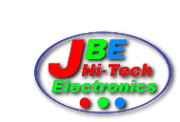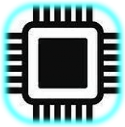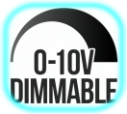News
Why is dimming used?
1. Energy savings
- Daylight regulation – use of sunlight
- Occupancy control – lights on only when needed
- Task tuning – using the right level of light
- Load shedding – flexible energy use
2. Comfort
- Optimal light for task/scene – personal control
- Comfort and safety
- Ambient design
3. Increases the life of the light bulb
- reducing the wattage of the light source
- Less wear and tear of the light bulb
Dimming LEDs or Incandescents light in a lower voltage 12Volts or 24volts DC.
If dimming is required, PWM (Pulse Width Modulation) devices drive LED’s at their rated current in a variable pulse.
- For constant current drivers, these are always integrated.
- For constant voltage driver systems, these are in some cases integrated, however the system may require a remote PWM interface.
PWM controls the time averaged current through an LED, and therefore, the brightness of the LED source or sources. In the PWM method, LED current level is set and then turned on and off very quickly, typically faster than is perceptible by the human eye. The dimming of the LED is proportional to the duty cycle of the PWM waveform.
The Common Mains Dimming Protocols:
1) Phase Control
Leading Edge
Forward phase-control dimmers (also known as Leading Edge dimmers)
Trailing Edge
Reverse phase-control dimmers (also known as Trailing Edge dimmers)
2) 0-10V, 1-10V and 0-5V Analogue DC voltage to control dimmer lights
The first and simplest electronic lighting control signalling system. Using a low voltage 0-10V DC signal connected to each LED power supply, Dimmer or Fluorescent ballast. At 0 volts the device will dim to 0% which will turn the device off, at 10 volts the device will be operating at 100%. For Trailing Edge dimmers 0 volts dimmer will dim to 10-30% only.
1-10V is also available. As stated 1Volt – 10Volt indicates for external "Dimmer Pot" potentiometer.
Analogue dimming is considered “unidirectional” i.e. there’s no feedback from the interface device or ballast.
3) Digital Protocol: DSI
Digital Serial Interface, the precursor to DALI dimming systems uses a digital signal to DSI compliant devices, LED interfaces or electronic Fluorescent ballasts.
4) Digital Protocol: DALI
Digital Addressable Lighting Interface (now the most commonly utilised commercial lighting control system). This is non-propriety lighting protocol, in that DALI is available from many different suppliers.
Digital protocols can be “bi-directional” i.e. devices or lighting fixtures can exchange data or communication back through the system. This could be data on faulty lamp reports or the use of sensors to communicate to lighting directly or in groups. NB: This is not possible with a DSI system.
Each DALI device has a “non-volatile” memory which contains it’s own settings such as an address, group assignments, scene levels and fade rates. This capability allows a DALI to operate with and without a central control point.
Other (less commonly used) protocols:
Switch dimming – this is a stand alone digital dimming protocol. It’s commonly used in residential or hospitality systems. It’s a cheap solution for dimming signal fixtures (i.e. a single fluorescent fixture) as there’s no control system required.
DMX512 – DMX512 is a digital communication protocol used commonly in the stage lighting and effects industry. It’s more commonly used in the commercial lighting market to control RGB and RGBW (white) colour change lighting systems.
DMX512 system allows for complicated programming to communicate to DMX devices through a ‘Data Bus’. This digital communication is sent generally in a 8/16bit code packets instructing fixtures on everything from dimming levels to movement positions.
RGB and RGBW
For RGB we address each colour individually via a “channel”. By mixing these channels we can create multiple colour effects. With all colours at 100% this effectively creates white.
With RGBW, the white allows for each colour to be altered within its “hue”.
For more information please contact us.
Home > NEWEST Products > New by Manufacturer > Infineon Technologies > Small Home Appliance Solutions - Infineon Technologies
Back to Infineon Technologies
Infineon Technologies Small Home Appliance Solutions
Infineon Small Home Appliance Solutions offer many devices and solutions that fit into small home appliance applications. There is a growing trend on style and more efficiency, which designers are addressing with countless variations. Energy-efficient, modern-looking, wipe clean, and hermetically sealed surfaces are only a few characteristics that a design engineer has to consider and incorporate into new designs. Infineon offers solutions for several key areas such as induction heating, as well as appliances that require motor control solutions with energy-efficient, integrated power devices.
Small Home Appliance Solutions
Featured Products
Infineon Technologies Next Generation Reverse Conducting IGBTs
Combines the TRENCHSTOP™ family with the innovative reverse conducting RC-H IGBT technology.
Learn More View Products
Infineon Technologies CIPOS™ Nano Intelligent Power Modules (IPMs)
Highly integrated power modules for high-efficiency consumer and light industrial applications.
Learn More View Products
Infineon Technologies CIPOS™ Micro Intelligent Power Modules (IPMs)
Compact, three-phase IPMs for low-power (up to 450W with heatsink) motor drive applications.
Learn More View Products
Infineon Technologies iMOTION IMC100 High-Performance Motor Control ICs
Integrate the hardware and algorithm for a Permanent Magnet Synchronous Motor (PMSM).
Learn More View Products
Infineon Technologies iMOTION™ IMM100 Digital Motor Controllers
Smart IPMs implementing sensorless FOC of a permanent-magnet synchronous motor (PMSM).
Learn More View Products
Infineon Technologies EiceDRIVER Isolated & Non-Isolated Gate Driver ICs
Gives the optimized low and high-voltage gate driver solutions for MOSFETs, IGBTs, and IGBT modules.
Learn More View Products
Induction Heating Example
To create compact, highly-integrated designs, the F Series Protected IGBT with TRENCHSTOP ™ RC-H5 technology for induction heating application have been developed. The F Series device incorporates a current sensing circuitry in conjunction with the existing current sense resistor required in induction heating designs. This limits, cycle by cycle, the resonant energy in the LC-tank and the peak turn-on current, as well as limiting the maximum voltage across the IGBT.
An additional active voltage clamp sensed via a voltage sense input, ensures the IGBT is not subjected to voltages beyond the specified breakdown voltage. This control mechanism is an improved version of a diode-based active clamp, actively turning the IGBT on to dissipate the surge energy while maintaining a constant VCE. To simplify the integration of the device into the existing mechanical design of an induction heater, the F Series is offered in the TO-247 package of standard IGBTs.
Trenchstop F Series
Low Power Motor Control Example
The trend to more futuristic designs demand electronic solutions with high levels of integration and innovative packaging, especially when it comes to heat dissipation. To meet this challenge, there are various levels of integration open to designers of motor control solutions, such as integration of the gate driver and power stage IGBTs or MOSFETs into a single device.
This is supported with the CIPOS™ IPM (Intelligent Power Module) range of energy-efficient, integrated power devices. At the smallest end of the scale, the CIPOS™ Nano series provides easy implementation of 3-phase or half-bridge motor control, while making use of the PCB copper traces to dissipate heat from the module. This provides cost savings, and in some cases, can eliminate the need for a heat sink.
Intelligent Power Modules
Hair Dryer Topology
How To Power
The fusion of the control solution and software for variable speed drive of permanent magnet motors:
Devices such as the iMOTION™ IMC100 provide a motor control solution that can be parameterized to control the chosen motor without the complexity of software development. Where space is at an absolute premium, designers can also turn to the fully integrated iMOTION™ IMM100 Series. With this device, everything from the motor control through to the gate drivers and power stage is integrated into a tiny 12x12mm PowerQFN package.





